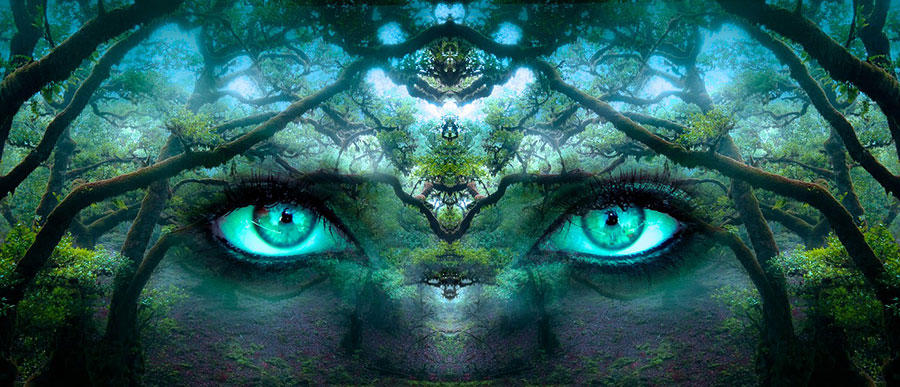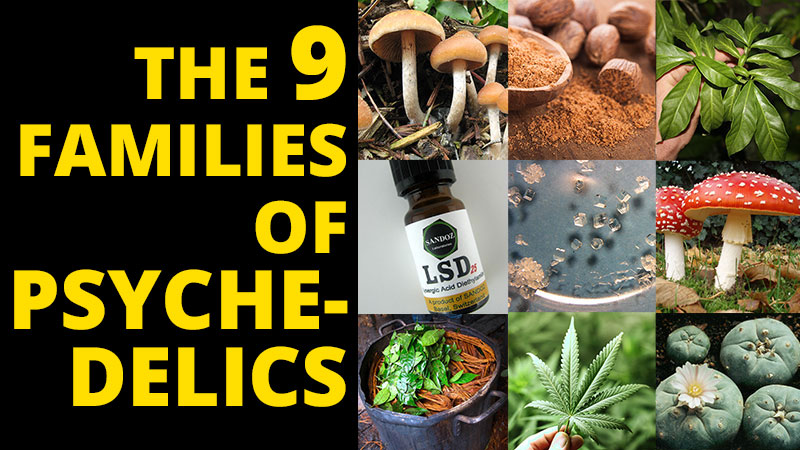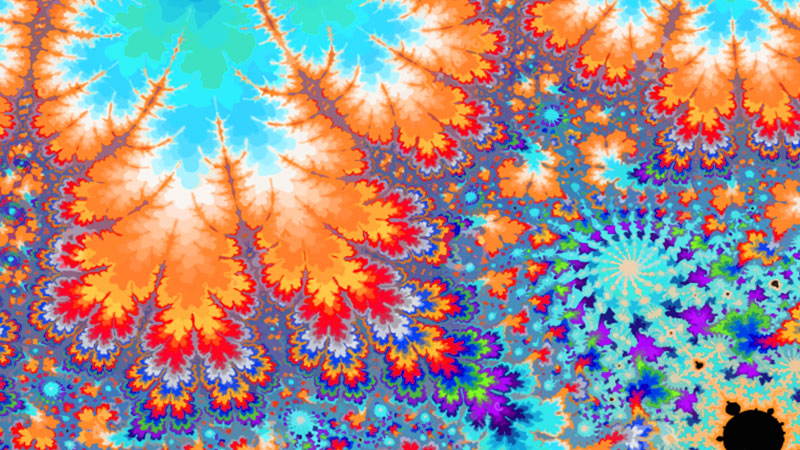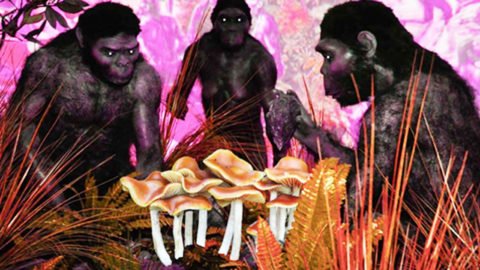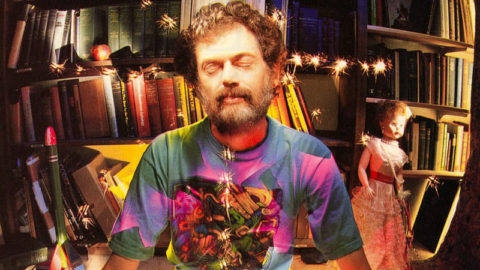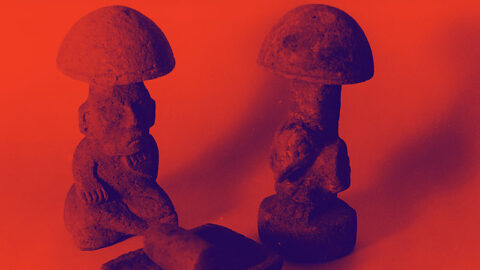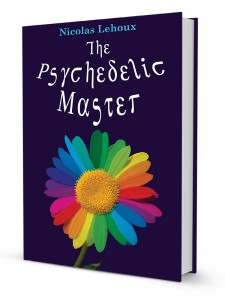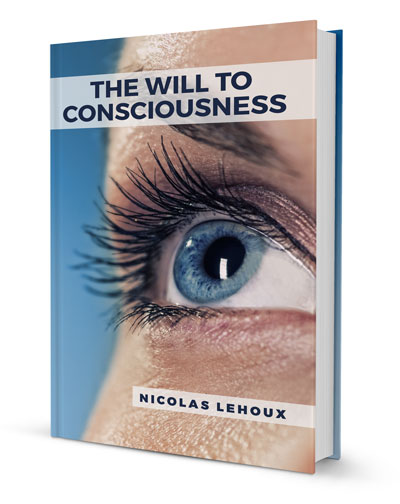This rehabilitation of psychedelics, which Terence McKenna called the “Archaic Revival,” fosters the convergence of several spheres including ethnobotany, spirituality and psychotherapy, ultimately leading towards a holistic perspective of the human being.
Ethnobotany is in full swing. In fact, the quantity and quality of information available today make it possible to study and cultivate a wide range of entheogens, and the amateur ethnobotanist can learn to recognize and harvest for free psychedelic plants such as morning glories, mushrooms and datura, which grow everywhere. And they can also easily be home-grown. Thanks to the internet, entheogens can be ordered directly from their countries of origin and information shared on them. Sites like Erowid contain clear and accurate information, tips, advice, recipes, testimonials, etc. In addition, shops specialized in ethnobotany legally offer powerful psychedelics such as San Pedro, Salvia, Iboga and the plants necessary to create Ayahuasca. As long as synthetic substances remain illegal, it may be recommended to turn to ethnobotany to minimize paranoia and maximize the chances of living a positive and rewarding experience.
Entheogens have been used as spiritual facilitators since earliest humanity; theories which place them at the genesis of religions and spiritual traditions are gaining increasing credibility. Religious traditions have used, and continue to use, psychedelics as physical aids in religious and sacramental practice. The Vedas, for example, the oldest scriptures on Earth, speak of Soma, an elixir containing the mushrooms Amanita muscaria or Stropharia Cubensis. In India, Patanjali includes the “yoga of herbs containing light” as a valid path to enlightenment. Several religions indigenous to the Americas use peyote, magic mushrooms, datura and morning glories. Ayahuasca is used in Peru and Brazil to communicate with the gods and maintain community health. Rastafarians use marijuana daily.
The use of such substances for spiritual ends still generates lively debate today. For example, since the sixties an ever increasing number of people are led to Buddhism because of transcendental experiences catalyzed by psychedelics. Because the Buddha’s teachings recommend not to abuse intoxicants, some practitioners believe them to be proscribed. They believe that one becomes a prisoner of this type of experience, and that this is not the “non-being” sought by Buddhism and Zen. Others believe that intoxicants should be tolerated but not be abused – it is the middle way, after all. It is undeniable, however, that Buddhism now has to live in symbiosis with psychedelics. Because LSD catapults us beyond our conceptual structures and releases us from them, it circumvents our habit of identifying ourselves with our thoughts and puts us in a non-conceptual mode very quickly. Mystical states obtained through entheogens are so similar to those gained through traditional methods like meditation that it becomes impossible to differentiate them.
If we look at Stan Grof’s data, or that of people who undertake a series of intense psychedelic sessions in the right place and in the right state of mind, what we find is that some, not all, but some people will experience the pure causal condition, a state of Oneness, a true experience of Samadhi, and this is what makes it worth it.
– Ken Wilber
Jean Gebser was the first to note the integral structure of human consciousness, which led to the development of a new branch of psychology: transpersonal psychology. It examines non-ordinary states of consciousness: parapsychological phenomena, trance, meditation, and paroxysmal and psychedelic experiences. Abraham Maslow, Carl G. Jung, Ken Wilber and other therapists and thinkers enriched the discipline, now considered by many to be the fourth pillar of psychology (the other three being behaviorism, psychoanalysis and the humanistic approach).
The potential benefit of psychedelics in the field of personal growth when supervised by conscientious professionals is undeniable. Clinical studies demonstrate that psychedelics are useful in relieving alcoholism and other drug addictions, post-traumatic stress, depression, and obsessive-compulsive disorder, as well as helpful in dealing with relational issues and countering criminal recidivism. They are also invaluable when used in conjunction with terminal cancer psychotherapy, in the stimulation of meditative states and to trigger mystical experiences. Many therapists secretly used psychedelics despite their illegality, and after establishing their effectiveness, they could not, in good conscience, refuse such an effective treatment to their patients, despite the risk of imprisonment. Those that come to mind include Alexander and Ann Shulgin, Ralph Metzer, Timothy Leary and Richard Alpert, to name a few. An unfortunate consequence of this situation is that experiments and results cannot be shared publicly, depriving both the public and professionals a quantity of valuable information.
Entheogens, when taken by qualified individuals in the proper context, in appropriate doses, with a correct inner state and with suitable goals, show great potential for relieving pain generated at the various existential levels of the human being. They facilitate the emergence of subtle states of consciousness, states that are subsequently integrated into the being of the person both during the experience, and in everyday life. By dissolving the stranglehold of the logical-rational mind on the perception of reality, entheogens engender, on one hand, the manifestation and observation of content arising from prepersonal levels, and on the other, that emanating from the transpersonal.
A principal requirement for obtaining a rewarding experience with entheogens is honesty. As long as one is willing to confront and resolve all uncomfortable sensations experienced during such an encounter, the apprenticeship will be of great value. A major cause of discomfort during a psychedelic experience is the attempt by the subject to maintain a self-image that is not in harmony with the Self. The more one has invested in the created image, the greater the reluctance to change, therefore the greater the discomfort will be. The disparity can be so large and painful that the subject may experience psychotic episodes to escape the discomfort. The willingness to surrender to the experience and allow conflicts to be resolved often leads to an invaluable new perspective on repressed feelings, hidden values, compulsions, aspirations, and inappropriate behavior. In addition, as repressed psychic material is released, the inner essence of the transpersonal self is allowed to manifest. This can lead to a profound and ecstatic understanding of our true nature, and that of the cosmos.
The psychedelic experience tells us that inside each of us resides a self-healer. Used with care and wisdom they allow us to better understand reality and change ourselves consciously.
We are sitting at a pivotal crossroad in human civilization. If our attitude does not change radically, our destruction is inevitable. Materialism has placed us in a critical situation: pollution, crises, suffering, and injustice gnaw at humanity like a cancer. Through its subservient appendage, the media, the manipulative plutocratic machine magnifies these problems exponentially and causes even more devastation.
As suggested earlier in this chapter, psychedelics are not the solution but rather a solution to this problem. They can serve to draw attention to the subtle states of consciousness and give us a better understanding of reality. Psychedelics can be useful in rediscovering a healthy spirituality without dogma or intermediary, and to cure us of many ills that distract us from the essential. They favor a lifestyle that is deliberately conscious and in harmony with the rhythm of the universe.
To have psychedelics take their rightful place among us once again! They are an integral part of our civilization. They are friends of our essence. Psychedelics must once again be appreciated and honored for their true value. I dedicate this book to that thought.
Extract from The Psychedelic Master

